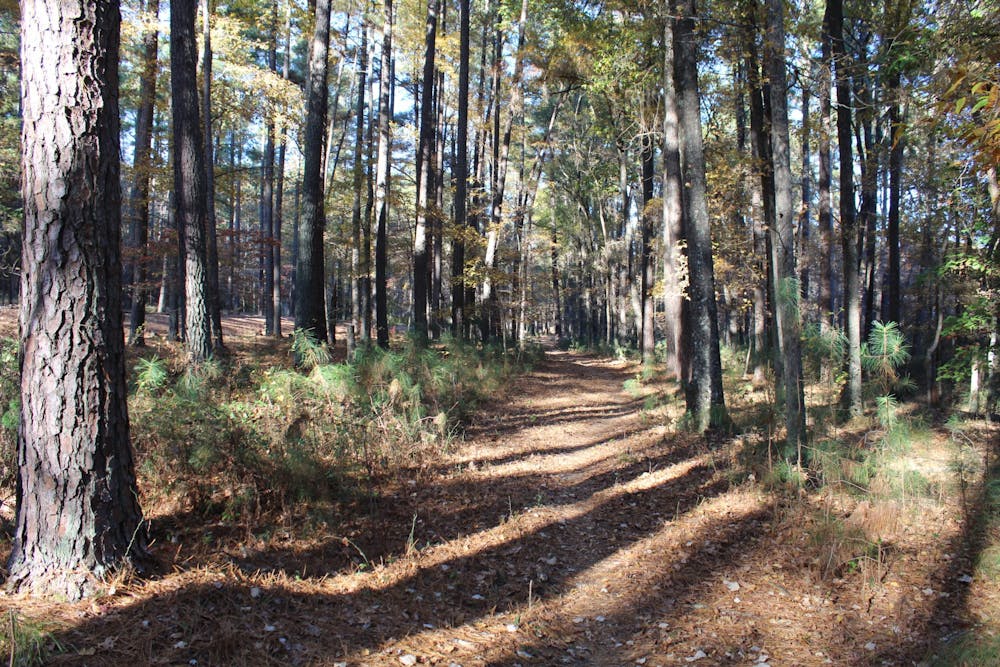This resolution affirms the acreage and land use designations that the governments agreed on in 2019, when they decided to merge the parcels into one jointly-owned preserve using 22 acres for preservation, 66 acres for housing and mixed-uses and finally a minimum of 16 acres for public school sites and public recreational facility sites.
While the BOCC voted to pass the resolution, some commissioners and community members voiced their displeasure.
In a board meeting on Nov. 16, Commissioner Jean Hamilton expressed concern over the timing of the decision and encouraged the other commissioners to postpone the decision until their December meeting.
“I care about process," Hamilton said. "I think the lack of trust in this process is probably because of our communication, of our timing. That in the long run, this lack of transparency, which is something I ran on as a commissioner, hurts trust and hurts our ability to do these things in the long run.”
Nancy Oates, former Chapel Hill Town Council member, said the decision to vote on the resolution on Nov. 16 was made behind closed doors.
“Why does this have to be run through before the newly elected officials can vote on it?" Oates said. "If you are afraid that they are not going to support this, maybe it’s not a good decision.”
Adam Searing, a newly-elected Chapel Hill Town Council member, said in an interview that even though the conversation about the Greene Tract has been ongoing for years, he felt that the newest resolution on the plan was expedited.
“I don’t think it really reflects a lot of the discussion that has been had about the Greene Tract, and it was actually pretty rushed,” Searing said. “I think even the staff of the different government bodies were saying, ‘Well, we haven’t even put together the public comments that have been received.’ So I don’t think that’s the last word.”
Some community members remain concerned that the land will be sold to commercial developers. However, Commissioner Earl McKee stated his firm belief that the three governments would not sell.
“I don’t believe for one moment that the three boards, the county and the towns, will just up and sell it to commercial development,” McKee said.
Minister Robert Campbell, president of the Rogers-Eubanks Neighborhood Association, encouraged the commissioners to move the resolution forward because it is just one step in the overall plan.
“We keep going back to yesterday, we want to go to tomorrow," Campbell said. "We are looking toward the future.”
To get the day's news and headlines in your inbox each morning, sign up for our email newsletters.
Delores Bailey, an executive director for EmPOWERment Inc., mirrored Campbell’s sentiment, and said the Greene Tract resolution is in line with all of the work that the Rogers Road community has done. Bailey encouraged the commissioners to vote for the plan.
The debate over the future of the Greene Tract is not over. According to Benedict, the next step for the Greene Tract will be to create a public information and communication plan to ensure the community remains informed and engaged throughout the process.
As this discussion of the land parcel moves forward, Searing said he hopes that there will be a large focus on affordable housing and land preservation.
“Sometimes in the heat of the moment — in the heat of all this back and forth — we get so focused on one issue that we forget that there is a broader issue here, which is really what kind of community we want to create,” Searing said.
@emmymrtin
@DTHCityState | city@dailytarheel.com
Emmy MartinEmmy Martin is the 2023-24 editor-in-chief of The Daily Tar Heel. She has previously served as the DTH's city & state editor and summer managing editor. Emmy is a junior pursuing a double major in journalism and media and information science.




